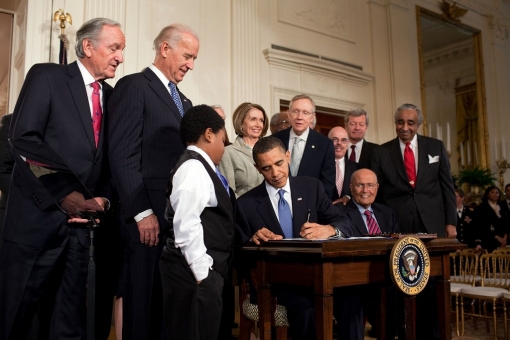|
|
RAND research and commentary on the issues that matter most
|
Mar 26, 2020
|
|
|
|
|
Photo by Mary F. Calvert/Reuters
|
|
|
|
The speed at which large swaths of the U.S. economy have shut down this month is unprecedented. Washington is on the precipice of finalizing a $2 trillion aid package—the largest in U.S. history—to provide some economic relief from the COVID-19 pandemic. The plan includes direct payments to Americans, jobless benefits, and $500 billion for struggling businesses, among other measures.
In a new Q&A, RAND researchers discuss how this money might be best allocated to help the U.S. economy recover. They also explore how much the country can afford, how the current crisis compares to the 2008 recession, the most important steps that cities and business communities can take right now, and much more. Read more »
|

|
|
Photo by JarekJoepera/Getty Images
|
|
A 2016 RAND report explored how a global pandemic could disrupt the U.S. blood supply. And now, this scenario is playing out in real life, as the spread of COVID-19 has led to canceled blood drives and fewer individual donations. What can be done to improve the long-term sustainability of America's blood supply? The authors concluded that more government oversight could help safeguard the supply and prevent future shortages.
Read more »
|
|

|
|
A Palestinian worker sanitizes the hands of a customer at a supermarket in Gaza City, March 8, 2020. Photo by Mohammed Salem/Reuters
|
|
This week, Palestinian health officials confirmed the first cases of COVID-19 in the Gaza Strip. This is especially concerning, because Gaza—one of the most densely populated places in the world—faces a severe water crisis. A 2018 RAND report assessed this problem and found that the people of Gaza lack access to potable water that can be used for drinking, cooking, and hygiene, plus a lack of wastewater sanitation. Without clean water, handwashing—one of the most basic and effective tools for stopping the spread of the virus—may be rendered ineffective.
Read more »
|
|

|
|
A sign in front of Bothell High School, which closed in response to the COVID-19 outbreak, Bothell, Washington State, March 3, 2020. Photo by Lindsey Wasson/Reuters
|
|
Today's COVID-19 response will likely have long-term effects. According to the authors of a new RAND report, this means that we can't lose sight of young people who are preparing to start college or their careers. Unfortunately, the pandemic has exposed our reliance on schools as the delivery mechanism for readiness support. It has also highlighted and potentially exacerbated disparities. However, the study offers some guiding principles for educators and policymakers that could help.
Read more »
|
|

|
|
A man wearing a mask walks through closed stores in Shanghai, China, February 4, 2020. Photo by Aly Song/Reuters
|
|
COVID-19 reached its peak in China in mid-February. Since then, Beijing has focused on restarting the economy. But small and medium-sized businesses in China still face serious challenges, including a broken supply chain, cash flow and revenue issues, and continued regulations that protect public health—but limit commerce. In a recent congressional testimony, RAND's Jennifer Bouey explained how China's experience can offer lessons for the United States.
Read more »
|
|

|
|
President Barack Obama signing the Patient Protection and Affordable Care Act at the White House, March 23, 2010. Photo by Pete Souza/White House
|
|
The Patient Protection and Affordable Care Act was signed into law 10 years ago this week. The ACA expanded health coverage to millions of uninsured Americans by creating individual and small business insurance marketplaces and by broadening eligibility for Medicaid. But implementation of the law was met with many obstacles, including legal challenges and delays to key provisions. Over the last decade, RAND researchers analyzed the ACA from many different angles—and helped shed light on its effects.
Read more »
|
|
|
You already get the latest insights from RAND in your inbox. Why not your earbuds?
Policy Currents is available as a weekly podcast. Five minutes, every Friday.
Subscribe now »
|
|
|
|
|